2025 FALL FACULTY READING GROUPS
This semester the Center for the Advancement of Teaching is offering the following faculty reading groups. Each group will meet once a week for three weeks to discuss the books in sections. We hope you can join us! Please register here.
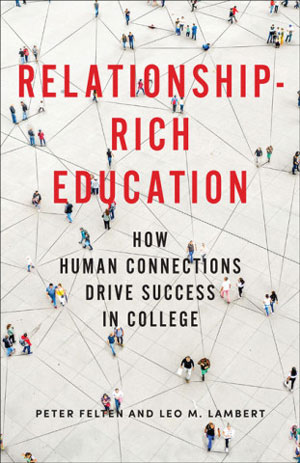
Tuesdays: 9/23, 9/30, 10/7
2:00–3:30 p.m. in DIF 432
Print copy, delivered through interoffice mail
Peter Felten and Leo M. Lambert argue that education is not merely a series of transactions, but instead an opportunity for students to form a web of meaningful relationships that are vital not only to their academic success but also to their sense of belonging and self-discovery. They explain that social connection and belonging are not just pleasant extras in college, but prerequisites for learning, especially for powerful learning. The book provides examples and strategies for how institutions can foster richer learning environments, and the reading group will discuss ways we can shape our teaching to cultivate community and connection in our classrooms.
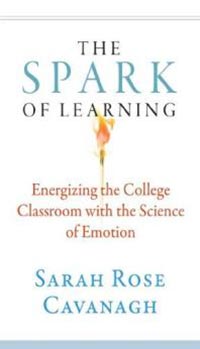
Fridays: 9/26, 10/3, 10/10
1:00–2:30 p.m. location TBD
Print copy, delivered through interoffice mail
Most of our preparation for teaching (both our training and our planning) focuses on the content and the thinking students need to do, but Sarah Rose Cavanagh reminds us that learning is a highly emotional process. Anxiety and fear hamper learning, while powerful positive emotions can enhance it. Cavanagh offers concrete strategies for harnessing the power of emotion to galvanize learning.
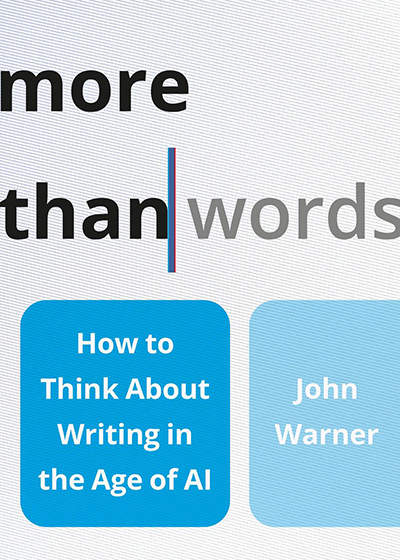
Fridays: 10/3, 10/10, 10/17
2:00–3:30 p.m. in DIF 432
Print copy, delivered through interoffice mail
John Warner is the author of Why They Can’t Write: Killing the Five-Paragraph Essay and Other Necessities and editor of McSweeney’s Internet Tendency. In his latest book, he addresses a topic on so many of our minds: How can we teach with writing in the age of generative AI? He argues that although computers can produce text, important aspects of writing are uniquely human. Emphasizing the ways humans think, feel, and learn through writing, More Than Words can inform both our teaching and our relationship with our own writing. In this group, we’ll discuss those topics and more. We hope you can join us.
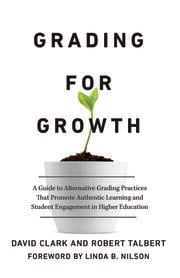
Thursdays: 9/25, 10/2, 10/9
11:00 a.m.–12:30 p.m. in DIF 432
Print copy, delivered through interoffice mail
In Grading for Growth, Clark and Talbert rethink grading and how it impacts learning. They offer an alternative to traditional grading, with a focus on promoting student learning and mastery of the course. The book provides a framework for alternative grading along with strategies that can be used across disciplines, class formats, and class sizes. We will gather to discuss the alternative approach to grading the book presents and consider how it can help us create classrooms where feedback, revision, and true understanding take center stage.
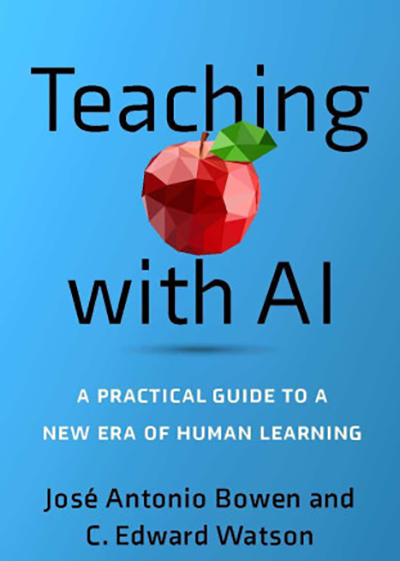
Tuesdays: 9/30, 10/7, 10/14
1:30–3:00 p.m., in the Conference Room (127) at the Innovation Hub.
Print copy, delivered through interoffice mail
In Teaching with AI, Bowen and Watson explore how AI is changing education and offer practical guidance on integrating AI into teaching and learning. They share suggestions on topics such as enhancing creativity, addressing academic integrity, and designing effective assessments. This group will provide a collaborative space to explore the transformative potential of AI in education, discuss innovative teaching strategies, and share a range of experiences. (AI helped to create this description.)
